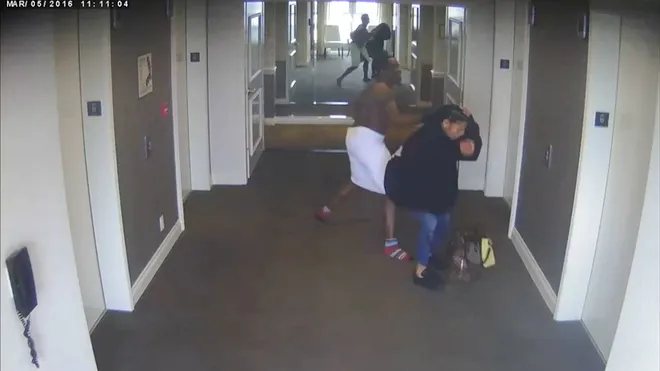
MAGA Is Now Threatening Walmart for Responding to Trump’s Tariffs
May 19, 2025
Matt Walsh urges Trump to ignore the Supreme Court’s ruling on notice before deportations: “It’s illegitimate. It’s ridiculous. Trump should ignore it.”
May 19, 2025A chilling video confirms what Cassie Ventura said all along—reminding us that consent can be withdrawn, power distorts choice, and belief in survivors should never hinge on perfect timing or proof.
Editor’s note: This story contains graphic descriptions and images that some readers may find disturbing.
The surveillance video is horrifying. It shows Sean “Diddy” Combs grabbing, throwing and kicking his then-partner Cassie Ventura in a hotel hallway. There’s no ambiguity—no “he said, she said.” Just brutal, public violence.
But here’s the more uncomfortable truth: Cassie told us this years ago.
In her 2023 lawsuit, she accused Combs of rape, trafficking and a decade of control. He settled with her in just 24 hours—an outcome that speaks volumes. Yet as the footage resurfaces, so does the backlash: Why didn’t she leave? Didn’t she choose to be with him? Why speak out now?
Let’s get something straight.
Consent is not a contract. It is not permanent. It is not unconditional.
Consent can be enthusiastic and real—and then withdrawn the moment a person feels unsafe, coerced or manipulated. The idea that Cassie’s relationship with Diddy somehow invalidates her testimony is not just ignorant. It’s dangerous.
This is Consent 101, and apparently, a refresher is long overdue.
When a 19-year-old newcomer enters a relationship with a 36-year-old music mogul who controls her career, that’s not an even playing field. That’s power, money and influence stacked against youth and vulnerability. And when that same man isolates her, monitors her, coerces her into sex acts and physically assaults her—what we’re talking about isn’t love. It’s abuse.
Yet Cassie has had to prove and re-prove her pain. She had to bleed in public. She had to let us watch. And still, too many people respond not with outrage at her abuser, but suspicion of her motives.
This is how rape culture works. It casts doubt on victims. It protects men with power. It demands that survivors be perfect and blameless before we grant them belief.
But belief shouldn’t be a luxury. It should be a starting point.
Cassie Ventura is a woman of color who dared to tell the truth about a powerful man. That alone is a radical act in a culture that demands silence from women like her. The system wasn’t built to protect her—it was built to protect him. And still, she spoke.
Her story should remind us that consent is an ongoing conversation. You can say yes on Monday and no on Tuesday. You can say yes once and never again. You can say no silently. You can say no by walking away. And when you say no—no matter when, no matter how—it means stop.
We are long past the point of treating consent like a checkbox. It’s not an agreement you sign and can never undo. It’s not, “she didn’t say no,” or “she stayed,” or “she dated him.” All of those are distractions from the truth.
The truth is: Cassie said stop. He didn’t.
So if you’re still asking why she didn’t leave sooner, ask instead why he didn’t stop.
Ask why we keep expecting survivors to save themselves while we refuse to believe them. Ask why we need a leaked video to take a woman at her word.
Ask yourself: Whose silence are you protecting?
Great Job Yolanda Wiggins & the Team @ Ms. Magazine Source link for sharing this story.







